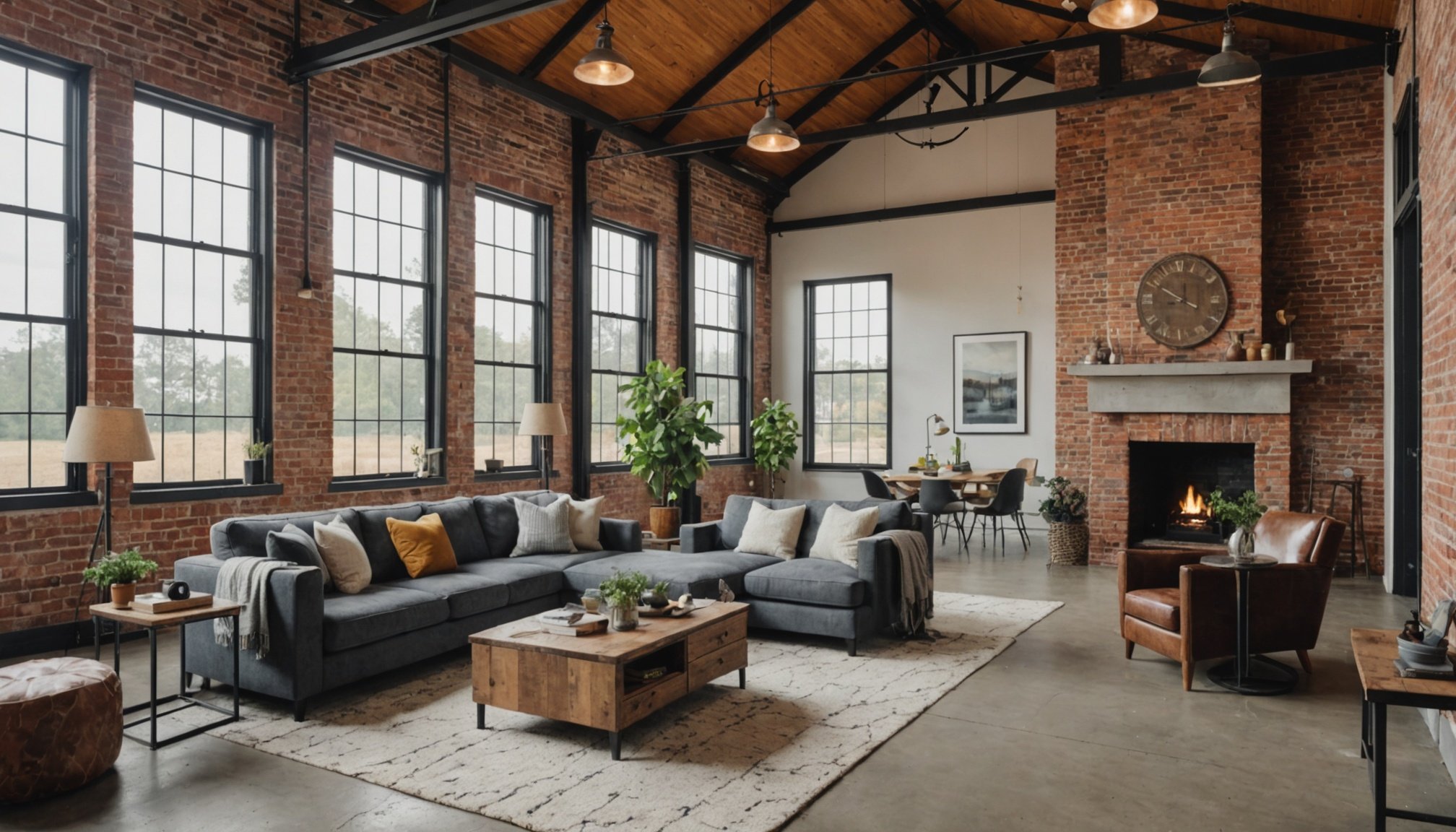Overview of Legal Considerations for Converting Industrial Spaces
Converting industrial spaces into residential areas in Birmingham presents a complex legal landscape. Legal considerations are crucial to navigate, as failure to comply can lead to significant setbacks. One must first understand the zoning laws that dictate what activities are permissible within industrial zones. In Birmingham, local zoning laws play a pivotal role in determining whether a property can be transformed into a residential space. It’s essential to be aware of local Birmingham regulations to ensure that the conversion aligns with municipal plans.
Homeowners interested in industrial space conversion must comply with specific requirements. This involves obtaining necessary permits and ensuring all renovations meet local building codes. Birmingham’s zoning laws classify areas into distinct categories, each with its restrictions and allowances for property use. Understanding these designations can significantly impact your conversion strategy and success.
Also read : Unpacking brexit”s impact on london”s residential property development scene
Compliance also demands keeping abreast of any changes in regulations, as non-compliance might result in fines or mandatory reversals of unsuitable alterations. By staying informed and working closely with local authorities, homeowners can mitigate the risks associated with industrial space conversion, turning potential obstacles into opportunities for successful projects.
Zoning Laws and Regulations
Understanding zoning laws is critical for anyone considering a residential conversion in Birmingham. These laws classify land into categories, dictating permissible activities in each zone. Birmingham zoning regulations play a pivotal role in this transformation process, as navigating these laws determines the project’s feasibility.
Also to see : Unlocking the impact of digital connectivity on property values in the uk”s remote regions
Understanding Zoning Designations
In Birmingham, zoning categories like residential, industrial, and commercial set boundaries for property use. Each designation comes with specific restrictions and allowances affecting your options for residential conversion. It’s essential to understand these categories to ensure your project complies without unwelcome surprises.
Permitted Uses and Restrictions
Industrial zones often have limited allowances for residential uses, requiring insight into what is legally permissible. Homeowners might face unique challenges—such as noise or pollution limits—that affect suitability for living spaces. Examining case studies of successful conversions highlights both restrictions and innovative solutions.
Zoning Variances and Appeals
Applying for variances offers a path when zoning regulations pose obstacles. Homeowners can petition local authorities to allow exceptions to standard zoning rules. While achieving approval can be challenging, success stories demonstrate that thorough preparation and understanding of the process are crucial. Homeowners often succeed by presenting compelling evidence that their projects align with community needs and regulations.
Necessary Permits for Conversion
Securing the right building permits is a fundamental step in transforming an industrial property into a residential space in Birmingham. Conversion permits are specifically required for projects of this nature, ensuring that the proposed changes meet all regulatory standards. Homeowners must initiate this process by thoroughly preparing their application, providing detailed plans and specifications for the renovation. The precise steps involve consulting with the local planning office to understand specific Birmingham regulations affecting the project.
Once the application is submitted, the timeline for obtaining renovation approvals varies but generally includes reviews by multiple departments. These departments assess factors like structural safety, fire prevention standards, and the potential impact on the neighbourhood. Failure to acquire these permits can lead to legal penalties, and in severe cases, the reversal of completed work at the owner’s expense.
To prevent such consequences, it’s advised to work closely with architects or contractors familiar with the legislative landscape. This partnership can significantly streamline the permit acquisition process, reducing delays and ensuring all municipal standards are met. By carefully navigating these requirements, homeowners can confidently move forward with their conversion projects, transforming industrial spaces into legally compliant homes.
Compliance with Safety and Building Codes
Converting industrial spaces into residential homes demands strict adherence to building codes and safety regulations. Ensuring compliance standards are met is fundamental to prevent legal repercussions and potential hazards. Industrial settings often weren’t originally designed for residential safety, making compliance a critical step.
Key Safety Standards for Residential Properties
Safety regulations for converted buildings focus heavily on fire safety and structural integrity. Fire safety is paramount, requiring features such as smoke detectors, sprinkler systems, and fire exits. Structural integrity involves assessing and reinforcing the building’s framework to withstand residential use. Adhering to these safety standards is not only required by law but crucial for the well-being of future occupants.
Working with Contractors and Inspectors
Engaging licenced contractors familiar with local safety codes can streamline the conversion process. Contractors provide expertise in navigating regulations and implementing necessary modifications. Similarly, inspectors play a vital role, offering evaluations to ensure that each stage of renovation aligns with legal standards. Their recommendations can be instrumental in achieving compliance and can save time and resources.
Ensuring Continuous Compliance
Continuous compliance throughout the renovation process is essential. Regular inspections and maintaining open communication with local authorities can help identify and resolve issues proactively. Utilizing strategies to handle inspection challenges effectively will ensure a smooth path to converting industrial spaces into vibrant homes.
Compliance with Safety and Building Codes
Converting industrial spaces into residential areas demands strict adherence to building codes and safety regulations. Understanding these compliance standards is essential to ensure both the legal validity and safety of your project.
Key Safety Standards for Residential Properties
Key safety regulations in Birmingham specifically target converted industrial buildings. Ensuring fire safety and maintaining structural integrity are priorities. These regulations require that all residential properties have adequate fire exits, fire-resistant materials, and fulfil stability criteria.
Working with Contractors and Inspectors
Selecting licensed contractors familiar with local Birmingham regulations can simplify compliance. Their expertise aids in navigating complex building codes. Additionally, qualified inspectors play a critical role in the renovation process, ensuring standards are met at each phase. Regular inspections help in identifying compliance issues promptly.
Ensuring Continuous Compliance
To maintain compliance, establish clear communication with contractors and inspectors, and keep updated with any regulatory changes. Address inspection challenges by proactively preparing for potential code violations. Start with thorough pre-inspections and implement compliance strategies throughout construction. By focusing on these factors, homeowners can ensure a seamless conversion journey.
Resources and Further Assistance
Understanding the complexities of industrial-to-residential conversion in Birmingham requires access to the right resources. Homeowners benefit greatly from engaging with Birmingham local authorities. These authorities are essential for obtaining guidance on legal compliance, zoning laws, and permit applications.
Local Authorities and Contact Information
For a successful conversion, reaching out to specific governmental bodies in Birmingham is crucial. These include the City Planning Department for zoning guidance, the Building Control Office for permit applications, and the Environmental Health Department for safety standards. Each department can provide detailed information and respond to inquiries, helping navigate the regulatory landscape.
Legal Experts and Consultation Services
Engaging with legal experts in property law can provide homeowners an edge. Specialists in this field can assist in interpreting regulations, securing necessary variances, and avoiding potential legal pitfalls. Consultation services can be invaluable, offering personalised advice tailored to specific conversion plans.
Online Resources and Community Support
Numerous online platforms, including forums and local community groups, support homeowners through their renovation projects. Websites offer insights into others’ experiences, sharing successful strategies and pitfalls to avoid. These resources can be an excellent means for connecting and exchanging advice with those who have faced similar conversion challenges.
Potential Challenges in the Conversion Process
Converting industrial spaces into residential areas presents various challenges of conversion that need strategic navigation. One of the primary legal obstacles involves aligning the project with Birmingham’s regulations. Some zoning laws may strictly limit residential options, creating hurdles in obtaining necessary approvals for renovation. To overcome these barriers, understanding local legal frameworks and proactively engaging with regulatory bodies is crucial.
Logistical challenges, such as addressing structural modifications and meeting safety standards, add layers of complication to the conversion. Renovation risks include unexpected construction issues, leading to delays or cost escalations. Engaging licenced contractors with experience in industrial conversions can mitigate these risks significantly.
Insights from homeowners who have successfully navigated conversions highlight the value of thorough planning. Collaboration with legal experts and participation in community forums can offer vital support. Homeowners often find success by sharing experiences and resources, turning potential pitfalls into learning opportunities. By anticipating challenges and preparing diligently, converting industrial spaces can become a manageable undertaking. This approach not only eases the transition but also enhances the prospects of achieving a successful and compliant residential conversion.
Potential Challenges in the Conversion Process
The conversion of industrial spaces into residential homes in Birmingham poses various challenges. Understanding these complexities is crucial for a smooth transition.
Legal Obstacles and Logistical Challenges
Legal obstacles often arise from navigating the intricate zoning laws and Birmingham’s regulatory framework. Homeowners may face discrepancies between initially understood permissions and regulatory requirements. Logistically, the conversion process involves unforeseen renovation risks such as structural limitations, which may not be apparent initially. The key to overcoming these challenges is thorough planning and comprehensive research into legal prerequisites and potential logistical hurdles.
Strategies for Mitigating Risks
To mitigate risks associated with industrial space conversion, homeowners should adopt proactive strategies:
- Engage Early with Authorities: Seek early consultations with local Birmingham authorities to clarify legal and zoning requirements.
- Hire Experienced Professionals: Working with experienced contractors and legal professionals ensures the right interpretation of regulations.
- Budget for Contingencies: Allocate funds for unexpected expenses that can arise due to legal or structural challenges.
Insights from Homeowners
Insights from homeowners who have successfully navigated these challenges reveal the importance of being adaptable. Case studies highlight that successful conversions hinge on anticipatory measures and resilience in facing unexpected legal and structural issues.
Potential Challenges in the Conversion Process
Converting industrial spaces to residential areas involves numerous challenges, primarily concerning legal obstacles. Birmingham’s stringent regulations can significantly impact conversion projects, making compliance a critical factor. Failure to navigate these effectively may lead to delays or legal disputes.
Understanding of local zoning laws is essential to overcome these hurdles. Engaging directly with authorities to gain clarity on regulations can ease the process. Proactively obtaining necessary building permits and consulting with seasoned experts can preemptively address roadblocks.
In addition to legal barriers, renovation risks pose logistical challenges. Industrial structures often require significant modifications to meet residential standards. Renovation efforts can uncover unforeseen issues that escalate costs and timelines. Partnering with experienced contractors mitigates these risks by anticipating potential complications.
Homeowners facing these challenges can benefit from insights shared by those who have successfully navigated similar conversions. Learning from peers in community forums offers practical strategies and resources to tackle common obstacles. By anticipating challenges and employing strategic planning, converting industrial spaces into homes becomes an achievable task, turning what might seem like liabilities into stepping stones for a successful conversion.











